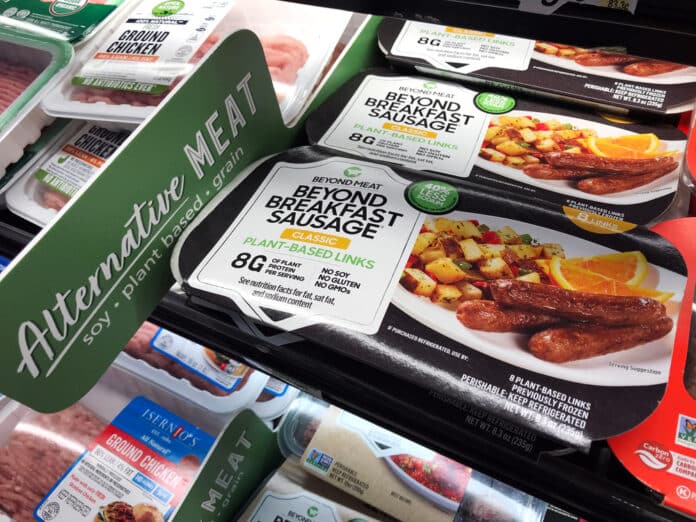
In recent years, there has been an uptick in interest in vegetarianism, veganism, and low meat consumption diets. The interest in these lifestyles is likely two-fold, as foregoing meat can have positive impacts on the environment and on individual health.
Red meat, such as beef, is the focal point in conversations about meat and its possible adverse effects on our health. In 1999, a study compared rates of heart disease in vegetarians, regular meat eaters, and intermittent meat eaters. The research found that vegetarians experienced the smallest rates of ischemic heart disease, otherwise known as hardening of the arteries.
Research such as this, as well as mounting evidence that meat production had a negative impact on the environment, has led to new alternatives. One popular alternative is plant-based meat.
What Is Plant-Based Meat?
Plant-based meat is different from the quintessential veggie burger. Veggie burgers are usually made of a mix of veggies, beans, nuts, and more. Plant-based meat aims to recreate the look, smell, and texture of real beef – without the beef.
Plant-based meat is usually made of pea and brown rice proteins, fats such as coconut or canola oil, minerals including calcium and iron, along with natural flavorings and colors. Without using any animal products, these patties replicate the taste and feel of a traditional burger.
What Are the Health Benefits of Plant-Based Meat?
Whether you like beef or hate it, it has some beneficial nutritional value. Namely, red meat is high in iron and protein, which are vital to good health. However, real beef is also high in bad fats and can be tainted with hormones from treating the cows.
The good news is that plant-based meat offers the nutritional value of real beef. It features the same nutrient values as real meat, just without saturated fat and cholesterol. It’s also a great source of protein and fiber, giving that same full feeling after a serving.
Although plant-based meat features less protein per serving than traditional meat, this can easily be fixed by eating more plant-based meat or choosing other protein sources alongside it, such as lentils, chickpeas, or beans.
Conclusion
Plant-based meat is gaining popularity every day. It’s better for your health, better for the environment, and does not involve the conditions required to create real beef. It’s no doubt that popularity will continue to grow with this alternative meat.


















